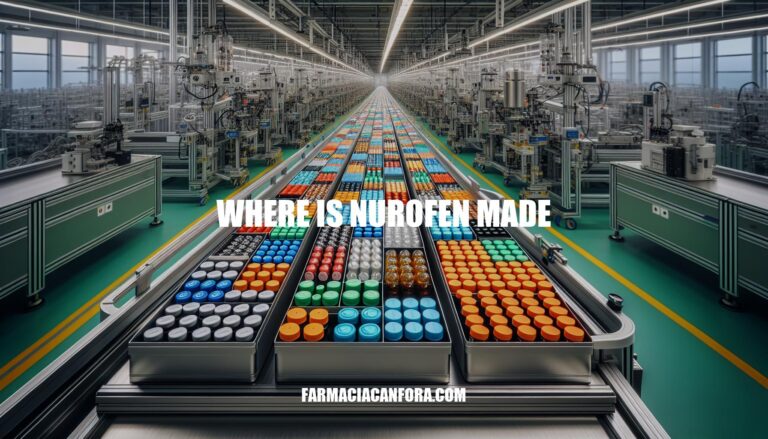


Nurofen, a widely recognized pain-relief medication, is manufactured by the British multinational company Reckitt. Initially developed by Boots Pharmaceuticals in the 1960s, ibuprofen“>Nurofen has become a staple in over-the-counter pain management. Its production primarily takes place in the United Kingdom, with distribution extending to various parts of Europe, South Africa, Australia, and New Zealand.
Nurofen‘s relevance in the pharmaceutical industry lies in its effective use of ibuprofen, which provides rapid and targeted pain relief. This has made it a go-to solution for managing everyday pain, contributing significantly to the global pain relief market.
Nurofen, a brand of ibuprofen, was first introduced in 1983 by Boots Pure Drug Company Ltd in the UK. The origins of its manufacturing process trace back to the 1950s when Stewart Adams and John Nicholson, working at Boots, began developing ibuprofen as a safer alternative to aspirin for treating rheumatoid arthritis. After extensive research and clinical trials, ibuprofen was patented in 1961 and launched in 1969 under the brand name Brufen.
In 1983, ibuprofen was approved for over-the-counter (OTC) use in the UK and marketed as Nurofen. The brand gained popularity for its effectiveness and safety profile. In 2005, Reckitt Benckiser (now Reckitt) acquired Boots Healthcare International, including the Nurofen brand. Today, Nurofen is manufactured by Reckitt and is available in various formulations, including tablets, caplets, and gels, and is sold in many countries worldwide.
Key milestones include the initial patenting and launch of ibuprofen, its approval for OTC use, and the acquisition by Reckitt, which expanded its global reach.
Nurofen is produced by Reckitt at several key locations worldwide:
These facilities ensure a broad geographical distribution, catering to various markets globally.
Nurofen, which contains ibuprofen as its active ingredient, is manufactured by Reckitt. The production process involves several key steps:
Synthesis of Ibuprofen:
Formulation:
Quality Control Measures:
These steps ensure that Nurofen meets stringent quality standards and is safe and effective for consumer use.
Nurofen, produced by Reckitt Benckiser, is manufactured in various locations, including the UK and Australia. The production of Nurofen must comply with stringent regulatory standards to ensure safety and efficacy:
These measures ensure that Nurofen meets the necessary safety and efficacy standards before reaching consumers.
Nurofen, a widely recognized pain-relief medication, is manufactured by Reckitt at several key locations worldwide, including Nottingham, Hull, and Sydney.
The production process involves synthesis of ibuprofen through Friedel-Crafts Acylation, reduction, and carbonylation, followed by formulation into various dosage forms and rigorous quality control measures.
Nurofen’s global availability is ensured through compliance with stringent regulatory standards, including: